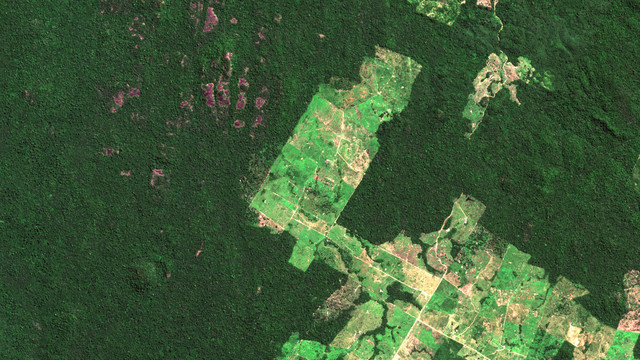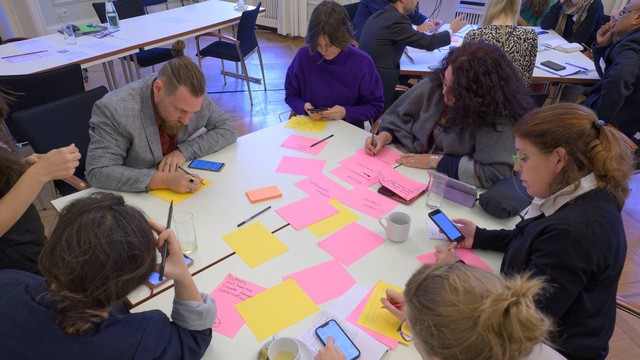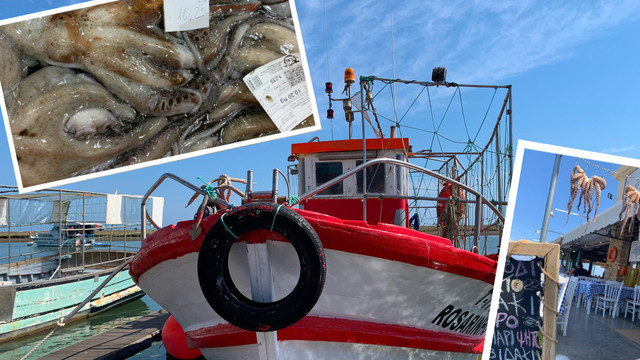Europe’s food security at risk without bigger role for farmers in policy and research
Europe's food security in a changing climate will depend on farmers being central participants in agricultural research and policymaking, with greater freedom to develop and choose the seeds they plant, says a new report by the International Institute for Environment and Development.
Europe's food security in a changing climate will depend on farmers being central participants in agricultural research and policymaking, with greater freedom to develop and choose the seeds they plant, says a new report by the International Institute for Environment and Development.
The report, published today (12 May), warns that the biological diversity that forms the basis of food supplies and agriculture’s ability to adapt to climate change is disappearing because the dominant policies favour large corporations and uniformity over small-scale farmers and variety.
For example, EU legal frameworks limit on-farm conservation by restricting farmers’ free access to diverse seeds. Strict demand for uniform produce means that only the most advanced varieties can be sold on the market, and this has reduced genetic diversity across a wide variety of crops.
In addition, intellectual property laws mean farmers must pay for the right to use patented genes and proprietary technologies that are mostly owned by large corporations. This significantly limits the potential for farmers to participate in plant breeding.
"Europe's agriculture policy is bad for biodiversity and forces farmers to use an increasingly narrow range of seeds and animal breeds," says the report's author Dr Michel Pimbert.
"Together these factors will make it harder for farmers to adapt to the changing climatic conditions that we are observing. Exporting this model to poor countries will add to global instability. Europe must overhaul its agriculture and aid to ensure that farmers and food systems are resilient."
Pimbert calls for reforms of the European Common Agricultural Policy, agricultural research programs, intellectual property rights system and the existing seed regulations to safeguard the biological diversity upon which our food supplies depend and ensure that knowledge, genetic resources and innovations remain accessible to all.
"Farmers' freedom to choose the seeds they plant and to use them to develop improved crop varieties and biodiversity-rich farming will be key to Europe’s response to climate change," says Pimbert. "Europe needs a much more democratic and participatory approach to policy making and research to solve the many social and environmental crisis caused by industrial agriculture."
The report highlights findings of the EU-funded Farm Seed Opportunities project which includes public-sector research institutes, peasant networks and organic farmers' associations from six European countries.
The report comes just days after the European Commission (EC) adopted a new strategy to halt the loss of biodiversity and ecosystem services in the EU by 2020. The EC will send the strategy to the European Parliament and EU Council for discussion and endorsement.
"The modern food chain— beginning with the monocultural high-tech estate and the multi-story pig factory, and ending at the supermarket after many a contortion—is not serving us well at all," says biologist and author Colin Tudge, in the report's foreword. "The kind of farming that makes most money in the shortest time is absolutely at odds with the kind of farming that could feed us, and that could continue to feed us."
"If we truly want to feed ourselves, and to go on doing so, we must apply the principles of biology," adds Tudge. "Those principles tell us that the most productive and sustainable farms – the ones that can continue to produce the most crops and livestock per unit area over the very long term – are mixed, tightly integrated, and, in general, organic."
Download the report Participatory Research and On-Farm Management of Agricultural Biodiversity in Europe



